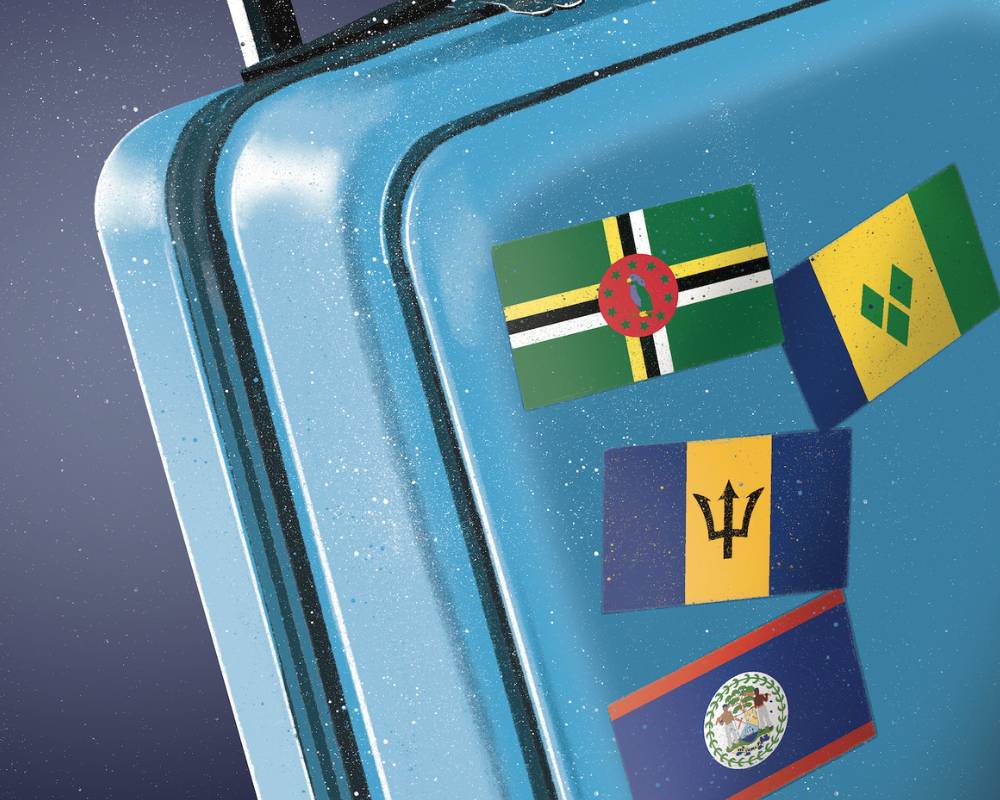
In 2023 the Barbados Prime Minister, the Honourable Mia Amor Mottley continued to lead the charge for securing the future of small island economies by making the case for fundamental reform of global finance architecture to make it more equitable and fit-for-purpose.
After garnering the support of the UN Secretary General António Guterres, the Bridgetown Initiative 2.0, was launched in April 2023 (UN.org), calling for “urgent action to transform the broken global financial system.” Without reform, they argued, the world risks a decoupling of the international financial system from developing countries. These countries face the irretractable challenges of trying to invest in climate resilience to secure the futures of their populations, while at the same time servicing debt, facing higher borrowing costs, and having limited access to liquidity in times of crisis, such as weather-related disasters.
From a financial capacity perspective, developing countries are caught within a circular conundrum: as a starting point, they have higher debt to GDP ratios and therefore have a lower financial capacity to borrow. For example, Barbados pays close to 20% of its GDP in interest payments annually, in contrast to many of the G7 countries, which have interest payments closer to 5% or even 1% of their GDP in some cases. This is further compounded by the fact that many of the international ratings agencies attribute the lower investment ratings for Barbados and other similar economies to the high debt to GDP ratios. And this in turn causes the cost of borrowing to be higher.
To this end, the Bridgetown Initiative 2.0 seeks to develop some level of rebalancing across the global economies. It includes six key areas for action:
1. Provision of immediate liquidity support including rechanneling at least $100 billion of unused Special Drawing Rights through the IMF and multilateral development banks.
2. Restoration of debt sustainability today and in the long-term and support of countries in restructuring their debt with long-term low interest rates.
3. Dramatically increasing official sector development lending to reach $500 billion of annual stimulus for investment in the SDGs (SDG Stimulus).
4. Mobilization of more than $1.5 trillion per year of private sector investment in the green transformation.
5. Transformation of the governance of international financial institutions to make them more representative, equitable and inclusive.
6. Creation of an international trade system that supports global green and just transformations.
The Bridgetown Initiative has since been endorsed by developed and developing countries. In June 2023, it won the backing of French President Emmanuel Macron at the Paris Summit focused on a “New Global Finance Pact”. Building on the Bridgetown Initiative, the Barbados Government committed in its 2023 Budget to establishing a Blue Green Bank by injecting USD $10 million in capital. This initial capital, along with other founding capital from multilateral financing institutions, will provide an initial tranche of funding for climate resilient projects in the region of USD $250 million.
By establishing this lower cost of funding, it would provide the impetus and support for many resilient water and wastewater infrastructure projects, coastal projects and other transformational type projects across the Government and its agencies.

Collaborative Solutions
In order to escape the cycle of high debt costs and high debt to GDP ratios, it will be critical for various multilateral financing institutions and other philanthropic entities to partner with the various governments of the developing countries in order to create new innovative forms of financing that can facilitate access to lower cost funding.
Private capital also has a role to play in helping small island economies to achieve climate resilience and sustainably transition to net zero. The recent KPMG report, Net Zero Readiness Spotlight: Islands identified that small island economies were caught in a Catch-22: they can’t attract private capital because they have a limited track record and pipeline of bankable climate projects, and they have a limited track record because they can’t attract enough private capital. There remains a mismatch between what private capital requires and what island economies can deliver.
Addressing some of the obstacles to private climate finance requires coordinated action by all involved. As a recent IMF article highlights, there is a need for regional governments to “strengthen the institutions and processes that develop, execute, and fund climate-related projects. These include green tagging of projects in budgets, accreditation to apply to climate finance, and upgrading procurement, transparency, and reporting standards.”
At the same time the article suggests that financial markets that supply climate finance must also play their part, they can “simplify the application processes, qualification requirements, and financial instruments, without weakening standards. Some options include establishing frameworks to pool applications of several countries and projects, making application requirements proportional to the amounts being requested. Climate finance instruments can be standardized to reduce appraisal cost and potentially facilitate the development of secondary markets for climate instruments.”
Building resilience in infrastructure and developing innovative forms of finance will continue to be key for Barbados and other island economies if we are to protect the lives, livelihood, and populations of the respective islands from the effects of climate change. The Bridgetown Initiative will continue to evolve, but key to its principles will be changing the underlying architecture of the financial system so that the smaller developing economies are able to build some level of financial, economic, and nature-based sustainability.






-4.png)









